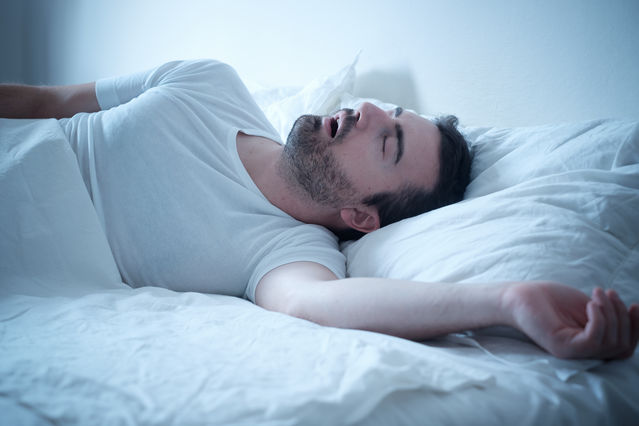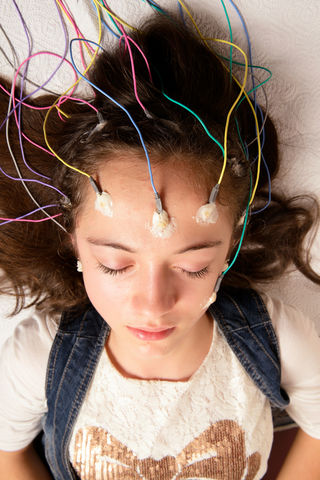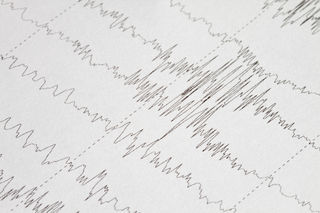Sleep
Sleep Strengthens Recent Learning and Negative Memories
New research uncovers details about how sleep affects learning and memory.
Posted November 16, 2017 Reviewed by Matt Huston

All day long, while we’re awake, our brains are busy. They take in the world, learn from our experiences, and form memories of what we have seen, done, heard, and learned. Sleep plays an essential role in consolidating learning and memory. How exactly that works, however, is still mostly a mystery. This week, at the Society for Neuroscience’s annual meeting, researchers presented a few new clues as to what might be happening in the brain while we are asleep.
Scientists have previously been able to watch the neural patterns—the sequence in which brain cells fire—that reactivate waking experiences as animals sleep. In other words, they’ve pinpointed memories in animals’ brains. Memories aren’t stored in a particular place in the brain. Instead, a memory represents a particular sequence of brain activity.
But in humans, that’s been harder to observe. That’s why these new results, still unpublished, are so intriguing. They showed, in humans, that sleep selectively boosts negative memories. And by analyzing electrical brain patterns during sleep with machine learning algorithms, scientists successfully predicted what kind of content people had learned right before they went to bed.
“Curiously, sleep does not treat all memories equally,” says Roy Cox, a cognitive neuroscientist at Beth Israel Deaconess Medical Center and Harvard Medical School, who investigated negative memories. More than 50 healthy people came into Cox’s lab. First, participants learned a memory task in which they were shown photographs with either negative or neutral content, such as a burning house versus a house cat. They were tested on their memories of both types of content. Then for the next 12 hours, half the group slept (they came in at night), and half stayed awake (they came in during the day). When they were retested after 12 hours, the group that had been awake forgot negative and neutral information at equal rates. But the group that slept was different. They forgot the neutral information at the same rate as the other group, but they remembered the negative images much better. “A night of sleep seems to prevent forgetting of negative items specifically,” Cox says.
He and his colleagues believe that it might be beneficial for the brain to pick out negative memories—such as the appearance and location of a tasty-looking berry that turned out to make you sick—to protect against those threats in the future.

The scientists were also able to trick the brain into storing the negative and neutral memories differently (they took advantage of the fact that information seen in the left visual field is processed in the right visual cortex and vice versa). So all the negative memories were processed on one side of the brain and the neutral memories on the other side. They plan to use the resulting distinct neural signatures, recorded with electroencephalography (EEG), to delve further into whether the negative pattern of brain activity is reactivated more strongly during sleep.
In another study, Monika Schönauer, a neuroscientist at the University of Töbingen in Germany, was able to visualize memory processing during sleep in humans. Like Cox, she was using EEG, which traces the firing activity of neurons over time. But that technique generates reams of data. “We observe the silent activity of 10,000 neurons,” says Schönauer. The specific activity that relates to previous learning represents a tiny fraction of that EEG readout. So Schönauer and her colleagues tested whether they could use a machine learning algorithm—essentially throwing the power of computers at the problem—to recognize differences in brain activity based on differences in what an individual had previously learned.

To do that, they had participants come into the lab for a night. Before going to bed, half the group was shown images of faces, the other half images of houses—lots and lots of images. Then they slept for eight hours. “We recorded electrical brain activity during this time,” explained Schönauer. Then they tested whether their algorithm could predict whether a participant had learned about faces or houses before sleep. It could, accurately predicting the content 65 percent of the time.
“We can prove that yes, the sleeping brain processes what we have learned before,” says Schönauer, “and this helps us remember the information.”
In both studies, it was during deep sleep (non-REM sleep) that strong memories were formed—something scientists already knew. That said, Schönauer was surprised to see some reprocessing occurring during all forms of sleep.
Sigrid Veasey, a professor of medicine and sleep researcher at the University of Pennsylvania, sums up the significance of the work. “Sleep is anything but an idle process,” she said. “The brain is playing a gatekeeper role in trying to accentuate and strengthen the relevant synapses, and the less relevant synapses will be weakened.”


